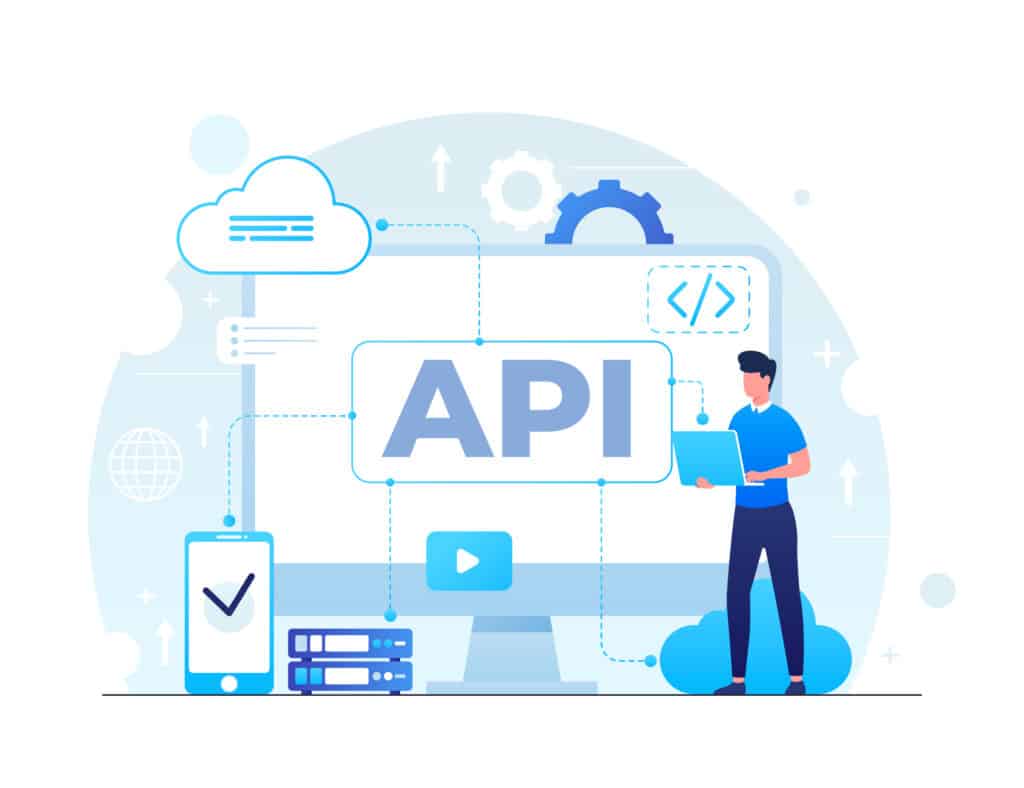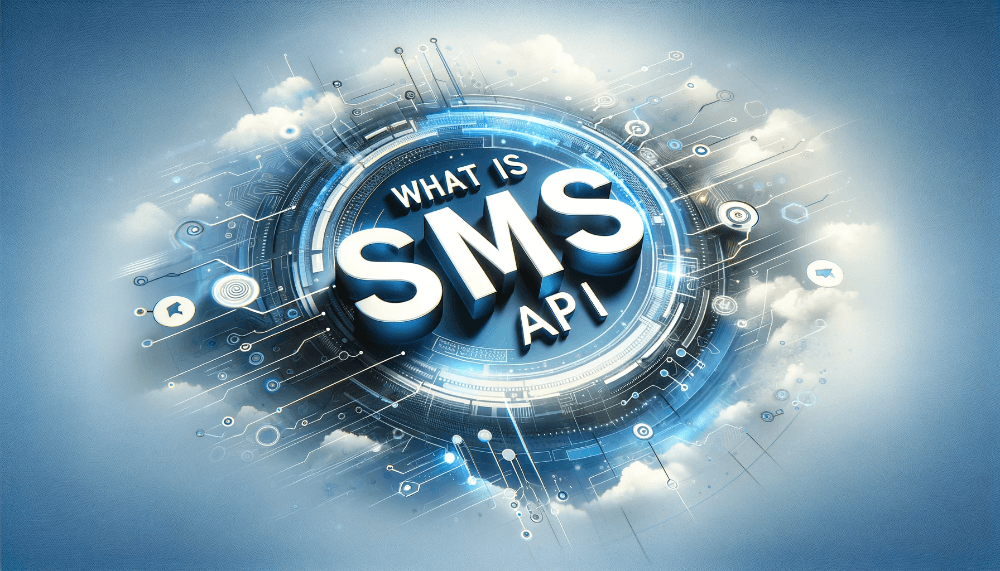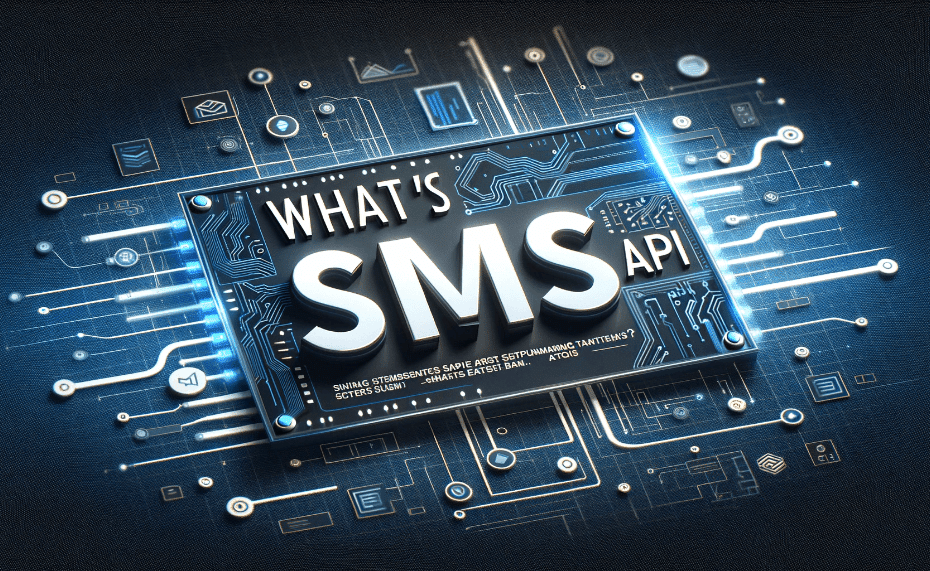📑 Table of Contents
- Understanding SMS API: The Tech Behind Simplified Messaging!
- Core Elements of SMS API
- Revolutionizing Marketing and Customer Engagement
- Streamlining Operations with Automated Messaging
- Adhering to Regulatory Standards
- Future of SMS API
- The Role of SMS API in Crafting a Customer-Centric Business Model
- Technical Aspects of API Integration
- Best Practices for SMS API Usage
- Measuring the Impact of SMS API on Business Growth
- Conclusion
In the age of instant connectivity, efficient and effective communication is the linchpin of business success. This brings us to an essential tool in the modern communication arsenal: SMS API. Understanding “What is SMS API?” is more than just grappling with a tech term; it’s about recognizing a powerful vehicle for business communication in a digital-first world.
This blog post delves deep into the concept of SMS API, exploring its mechanics, advantages, and the transformative role it plays across various business sectors.
Understanding SMS API: The Tech Behind Simplified Messaging!
SMS API, or Short Message Service Application Programming Interface, stands at the intersection of telecommunications and software development. It serves as a protocol bridge, connecting the robust world of telecom networks to the dynamic sphere of software applications. This integration enables the automated sending and receiving of text messages directly from software applications.
Core Elements of SMS API
- Automation and Scalability: Facilitates the sending of automated, scheduled, and bulk SMS messages, making it an indispensable tool for large-scale communication.
- Customization and Flexibility: Provides the flexibility to customize messages, integrate with various databases, and adapt to different software environments.
- Real-time Tracking and Analytics: Offers real-time insights into message delivery status, read receipts, and interaction metrics, which are critical for analyzing the effectiveness of communication strategies.
Incorporating SMS API into business practices isn’t just about adopting new technology; it’s about harnessing a tool that can significantly enhance customer interaction, marketing effectiveness, and operational efficiency.

Revolutionizing Marketing and Customer Engagement
SMS API takes direct marketing to new heights. It allows for the creation of highly targeted, personalized campaigns that reach customers on their most personal devices – their mobile phones. This direct and personal approach can lead to increased engagement rates, higher conversion rates, and, ultimately, a more substantial customer base.
Implementing Effective SMS Marketing Strategies
- Segmented Campaigns: Use customer data to segment audiences and tailor messages that resonate with each group.
- Timely Promotions: Send out flash sales, limited-time offers, or event-based promotions directly to customers’ phones.
- Feedback and Surveys: Quickly gather customer feedback and conduct surveys to improve services and products.
Streamlining Operations with Automated Messaging
SMS APIs are not just external-facing tools; they also streamline internal business operations. They can be employed for a range of applications, from sending out automated appointment reminders and booking confirmations to dispatching time-sensitive alerts to staff.
Enhancing Internal Communication and Coordination
- Emergency Alerts: Send instant alerts to employees in case of emergencies or critical situations.
- Schedule Reminders: Automate reminders for meetings, deadlines, and important events.
- Operational Updates: Keep staff informed about operational changes or updates in real-time.
Adhering to Regulatory Standards
- Consent Management: Ensure that all recipients have opted in to receive messages in line with GDPR, TCPA, and other relevant regulations. Learn more about SMS compliance.
- Data Privacy and Security: Maintain the highest standards of data security to protect customer information.
- Transparent Messaging Practices: Clearly communicate the purpose of messages and provide straightforward opt-out options.

Future of SMS API
The future landscape of SMS API is marked by continual evolution, driven by advancements in technology and changing consumer behavior.
- AI and Machine Learning Integration: The integration of AI can lead to smarter, more personalized messaging based on user behavior and preferences.
- Rich Communication Services (RCS): The next generation of SMS, RCS, promises to bring features like high-resolution imagery, video, and interactive elements to traditional text messaging.
The Role of SMS API in Crafting a Customer-Centric Business Model
In a landscape where customer preferences and behaviors are constantly shifting, SMS API stands out as a vital tool for building a more customer-centric business model.
This approach is not just about sending messages; it’s about creating a dialogue with customers, understanding their needs, and responding in real time.
SMS advertising, facilitated by SMS API, can be a potent tool when executed correctly. Learn more about SMS advertising 101.
Personalized Customer Experiences
- Tailored Messaging: Utilize customer data to send personalized messages based on preferences, purchase history, or browsing behavior.
- Instant Support: Integrate SMS API with customer support systems to provide quick, efficient service and support.
Building Long-Term Customer Relationships
- Loyalty Programs: Use SMS to manage and promote loyalty programs, sending personalized offers or rewards to loyal customers.
- Ongoing Engagement: Keep customers engaged with regular updates about new products, services, or content relevant to their interests.

Technical Aspects of API Integration
- Choosing the Right Provider: Select an SMS API provider that offers reliability, scalability, and robust support.
- Security and Infrastructure: Ensure the provider adheres to high security and privacy standards to protect sensitive customer data.
- API Documentation and Support: Look for comprehensive documentation and responsive support to facilitate smooth integration and troubleshooting.
Best Practices for SMS API Usage
- Respect Customer Preferences: Honor opt-out requests promptly and respect customer preferences regarding message frequency and content.
- Stay Informed on Industry Trends: Keep abreast of evolving trends in mobile communication and SMS technology to continually refine your strategy.
Measuring the Impact of SMS API on Business Growth
The true value of SMS API should be gauged by its impact on key business metrics. Businesses should focus on measuring:
- Engagement Rates: Track open rates, click-through rates, and response rates of SMS campaigns.
- Conversion Rates: Measure how effectively SMS campaigns lead to desired actions, like purchases or sign-ups.
- Customer Satisfaction: Assess customer feedback and satisfaction levels to gauge the effectiveness of SMS communication in improving the overall customer experience.

Conclusion
In the era of digital transformation, SMS API is not just a technology investment; it’s a strategic imperative. By enabling direct, personalized, and timely communication with customers, SMS API plays a pivotal role in driving business growth, enhancing customer experiences, and building a resilient, adaptable communication framework.
As we look towards a future marked by continued digital innovation, the importance of SMS API in crafting effective, customer-focused communication strategies is undeniable.
For businesses looking to stay ahead in a competitive landscape, embracing the capabilities of SMS API is a step towards a more connected, responsive, and customer-oriented future.
Learn more about SMS marketing guidelines and the industry’s best practices.
